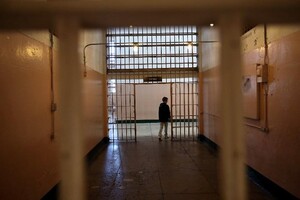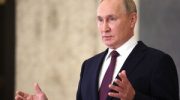And captive women are forced to stand, not allowed to sit down. They shave their heads and force them to undress for examinations every day.

Responsible for exchange negotiations prisoners of war with Russia and humanitarian corridors from besieged cities Iryna Vereshchuk spoke about the treatment of some women soldiers she managed to return to Ukraine. Of the 1,700 soldiers and civilians she says are currently being held by Russia and pro-Russian separatists, 500 women are the most concerned about their treatment and treatment, Reuters said in a statement.
“They force me to stand, they don't let me sit down. They shave their heads and force them to undress for examinations every day. They degrade human dignity. I know the facts of rape, I have seen broken ridges, ”she said with tears in her eyes.
Russian forces keep priests, journalists, activists, mayors and ordinary civilians in prisons not even in Ukraine, but in Ukraine. in the Kursk, Bryansk, Rostov regions. Vereshchuk stated that they are being held in cells with criminals.
Read also: “Military – on the military, civilian – on civilian”: Vereshchuk on Russia's condition for the exchange of prisoners
On Saturday, she announced on her telegram channel about the third prisoner exchange with Russia, during which 26 Ukrainians were released. Twelve of our servicemen returned home, including one female officer and 14 civilians, including 9 women. During the interview, Vereshchuk said about the Russian side:
“They want us to be scared. They want us to cry and be victims. But we are not. Our girls and women … are asking us continue to fight for our victory. “
It will be recalled that during the first month of the war, Ukraine captured about a thousand Russian soldiers. They have in fact become an exchange fund with which Ukrainian servicemen can be released later. In his article, Volodymyr Kravchenko, a columnist for the ZN.UA international policy department, notes that although the status of prisoners of war provides for combatant immunity (ie, soldiers are not individually responsible for participating in the war), international law does not exempt Russian servicemen from responsibility for war crimes.


